Everywhere you turn on the internet, people are complaining about AI taking their jobs.
Digital artists are running anti-AI campaigns to protect their work. Writers are striking to wrestle their jobs from ChatGPT and QuillBot.
Everybody is worried about the dystopian reality of robots taking over.
While we flail and wail at the prospects of entire industries getting swept away in the AI undercurrent, new opportunities are popping up faster than moles at the arcade.
And since corporations will look to AI to optimize costs and processes, we need to adapt to the new landscape.
I’ll show you how AI is coming for your job — our jobs — and what you can do about it.
AI is not the first disruptive technology
Throughout history, exciting inventions have changed realities — from the first human discovering fire to the printing press hitting the streets.
When Henry Ford came up with the Quadricycle in 1896, horse owners probably laughed him off the road.

“Most progress over the past thousands of years has come from doing new things that we never did before.”
By 1950, seeing someone on a horse in downtown New York became an absurdity.
The digital camera also witnessed that initial knee-jerk derision. Kodak shrugged off digital cameras as a fad. Today, people buy film cameras for nostalgia.
How does this translate to AI?
When Sam Altman and the OpenAI gang dropped ChatGPT, that same instant rejection became the status quo.
I understand the reluctance to abandon the status quo. Nobody likes the insecurity of eating from upset applecarts.

Giving that much power to unchecked, soulless computer programs never goes well — we have a vast cache of movies dedicated to this experiment.
So imagine digital artists waking up to the earth-shattering realization that years of their training had just become obsolete.
Those jobs and projects that took hours and days to complete, MidJourney and Dall-E could come up with in seconds.
I remember the first time I pushed myself to reluctantly prompt ChatGPT for an article.
The results shocked me, not because the prose was revolutionary or awe-inspiring. My fear came from realizing that, even at its worst iteration, the AI could match most humans in writing.
And like clockwork, articles about “using AI to create articles and artwork in seconds” started popping up on my timeline.
So, believe me when I tell you that my career flashed before my eyes.
One piece of algorithm, some code snippet written over several rounds of coffee-inspired sprints, has nullified my decade of experience as a writer.
How has AI changed the job landscape?
Almost every sphere of human activity has been caught in the AI riptide. If your work is optimizable, AI is coming for you.
Arts and crafts
Digital artists are the biggest losers in the AI apocalypse. My friend once showed me an AI-generated photoshoot of herself. That’s half of the business for photographers gone in the wind.
“There’s a fair amount of evidence that the digital era has contributed to the polarization of jobs and income.”
Generative AI systems and companies like Reface have redefined how people edit photos and videos.
Conversely, handmade crafts like pottery will remain safe, while robots will push factory workers out of employment.
Entertainment
Remember that hyperrealistic video of Tom Cruise? Well, the quality has gotten even better since that video dropped.
Now, face-swapping is a common practice, especially in the criminal underworld.
As a result of the recent Taylor Swift saga, governments are exploring ways to curb the spread of digitally manipulated content.
Writing
Standardized writing genres such as copywriting, UX writing, and technical documentation have become less in demand.
Thanks to AI writing, Marketers can now come up with SEO text, newsletters, and PR copies with top-notch prompting and a few tweaks.
Editors now have to struggle for space with AI proofreaders and scramblers such as Grammarly and Undetectable AI.
However, some parts of creative writing and fiction will be left unscathed. Poetry and original scriptwriting will survive for now.
Medicine
AI has improved diagnostics, sped up research, and eliminated all repetitive tasks in the medical field.

In third-world countries, AI helps gather data for preventive medicine against communicable diseases and epidemics.
The only worry is that the robotization of healthcare is a threat to nurses and care workers. Administrative tasks in hospitals will also fall victim to the AI surge.
Academia
Students are using AI text generators to write college essays. And to avoid detection, they use AI rewriters.
Although the impulsive reaction from schools is to condemn this act, I wonder how it is different from scraping essay content from Google or Wikipedia.
The argument here could be that the research is part of the learning process. But again, what matters most is that the text is not plagiarized.
While the debate rages on, cases of plagiarism will continue to spike as the technology gets even better.
Personal gadgets and customer service
Personal chatbots like Caryn AI have now become standard applications on smartphones and mobile devices.
Companies now embed IoT solutions with AI to improve user experience. This extends to wearable tech and household appliances.
Chatbots have become the first line of contact in customer support. Businesses now use them to reduce workloads and resolution time.
Information technology
AI has forced designers to standardize and optimize designs for responsiveness and accessibility.
Programmers can use copilots to generate code snippets or even entire projects from scratch.
At the same time, careers in quality assurance are under existential threat because AI solutions can replicate testing procedures without bias or human error.
Transportation and urban planning
Smart cities such as Dubai and Tokyo have used AI to improve urban planning and public transportation.

This involves tracking smart card usage data and using CCTV feeds to regulate traffic and plan massive gatherings in the city.
Criminal justice
Police departments in China are using AI-generated data to predict and combat crime.
Although activists are worried about the implications of such technology, the reality is that this dystopian Pandora’s Box is now wide open.
On the good side, cybersecurity companies also use AI detection to counteract cyberattacks through early detection and prevention.
In general, organizations and businesses will opt for cheaper, soulless machines that can work tirelessly over fallible humans.
It’s nothing personal. Profit is the end goal.
How to survive the AI apocalypse
So why it’s not all doom and gloom on the AI front, a lot of industries will phase out over the coming years.
“If you look at what drives purchases of consumers in advanced economies, it’s often not objective characteristics of products or services.”
So what does that mean for you? You have to adapt or die.
Here is what to do.
1. Learn what makes you replaceable
The more standardized processes in your profession, the higher the likelihood of AI taking your job.
As a writer, designer, or digital artist, look for that skill gap that AI tools could plug. If creating first drafts is your pet peeve, use AI to work on first drafts.
You can also use an AI text humanizer to humanize AI-generated text and remove all traces of ‘robotspeak’.
Remember this: no one will pay you extra for not using AI. What matters is results — the final quality of your output.
2. Learn how AI solutions work
Understanding how the AI solution generates artwork or text will be the next in-demand skill. So you need to drill down on the technology to understand how it works.
If possible, adopt a comprehensive, hands-on technical approach to find out how the algorithm generates output.
Worst-case scenario, you could find out that you love AI and machine learning as standalone disciplines. Or you could become a badass prompt engineer.
3. Understand your worth
If you don’t have solid ground to stand on, the AI riptide will sweep you away.
So you need to understand your core value as an individual — beyond the generic job description, beyond the veneer of confidence you put on at work every day.
“Algorithms don’t feel. Data doesn’t suffer.”
Let’s say you are a writer. You can tap into your personal experiences as well as your unique style to create value for readers.
That’s your superpower as a human. That’s how you can beat the machines.
4. Learn how to communicate
AI can obfuscate and hallucinate. That’s one advantage humans have over it.
So, your ability to communicate your ideas clearly, directly, and concisely could be your ticket to survival and relevance.
While learning how to communicate, work on your emotional intelligence as well as your interpersonal skills.
5. Build your network
Intelligence is what you know. Survival is who you know.
To adapt and stay relevant, connect with other professionals in your field and beyond. Join online forums, communities, webinars, and in-person events to meet and interact with like-minded people.
6. Be ready to pivot
Don’t let your unwillingness to adapt leave you as the last person on a sinking ship. If your industry is under threat, prepare to pivot and abandon ship.
Film photographers adapted to digital cameras, albeit begrudgingly. Whalers had to come back to shore to dig for crude oil.
So before the fall happens, start looking for how your current experience could translate to other disciplines.
For instance, writers could pivot to line editing AI-generated prose using humanizers.
Designers could also become curators or creative directors. It won’t hurt to start playing around with Midjourney.
To reiterate, nobody cares that you spent 200 hours on a masterpiece. We just want quality.
Who wrote this?
Ugochukwu Ezenduka writes about technology with the flair of a fiction writer for Ronin Point and other companies. He knows his way around JavaScript, ReactJS, and other programming languages. With a Master's Degree in Engineering, Ugochukwu has the chops and experience to break down complex concepts in digestible language. When he is not writing about tech, you can find Ugochukwu kicking a football or traveling with his camera.
- Ugochukwu Ezendukahttps://roninpoint.com/author/roninpoint/
- Ugochukwu Ezendukahttps://roninpoint.com/author/roninpoint/July 25, 2024
- Ugochukwu Ezendukahttps://roninpoint.com/author/roninpoint/July 25, 2024
- Ugochukwu Ezendukahttps://roninpoint.com/author/roninpoint/June 10, 2024



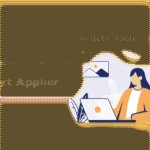
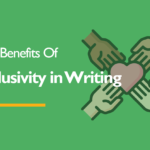

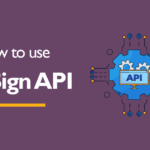
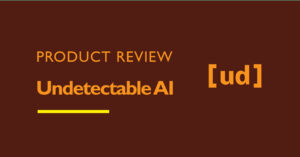
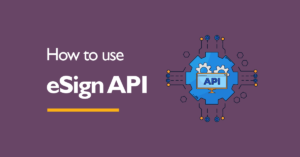
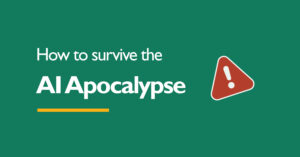
5 thoughts on “AI is Coming For Your Job. Here’s What You Should Do.”
👍🏽
Beautifully written. I like that it offers a pragmatic perspective on the inevitable integration of AI into the workforce. I am particularly drawn to the proactive adaptation it recommends, empowering readers to navigate the evolving job market with confidence.
Thanks for reading and sharing your thoughts!
This post is really an eyeopener Ugo. Thank you so much for penning all these down. In a short time, I have learnt a whole lot to stay up to date with the rising trends of Artificial intelligence. It exposed me to more.
Thanks to my sister Ginika for sharing this beautiful piece to me.
Thanks for reading and sharing your thoughts, Somtochukwu!